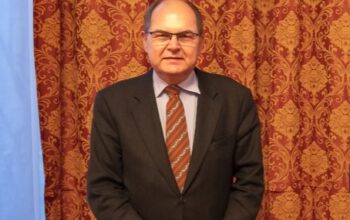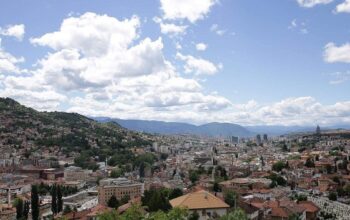The recent move by the High Representative to Bosnia and Herzegovina, Valentin Inzko, to lift some of the illegal punishments that his predecessors had unilaterally imposed on individuals is but a small step toward putting right an ongoing human rights outrage. On June 10, Inzko announced a decree lifting 58 bans on public employment and political activity that earlier High Representatives had imposed—unilaterally and without any form of due process—against BiH citizens. Inzko also issued three other decrees lifting sanctions that earlier High Representatives had decreed against BiH citizens.
Although the June 10 decisions are a positive step, they are far from what is required to correct the High Representative’s grave and continuing abuse of human rights and the rule of law. Inzko’s decisions do not acknowledge fault and do nothing to undo the grievous damage that these extrajudicial punishments have inflicted on the lives of the banned individuals. Moreover, many BiH citizens remain banned from public life or continue to suffer under other illegally decreed sanctions. Remarkably, Inzko continues to assert that he has the power to punish BiH citizens simply by handing down a decree.
Since 1998, the High Representative has removed and banned nearly 200 citizens of BiH, including democratically elected presidents, legislators and mayors, as well as judges, police officials, university professors, and public company executives. The High Representative has also issued other decrees blocking bank accounts and seizing travel documents, indefinitely. Despite the serious injuries such decrees inflict upon the punished individuals and their families, the High Representative allows the victims no notice of the specific charges or evidence against them, no right to confront their accusers , no hearings or opportunity to contest the charges, and no appeal.
When the BiH Constitutional Court ruled unanimously that the absence of a remedy for citizens punished by the High Representative violated the European Convention on Human Rights, the High Representative issued a decree nullifying the decision and ordering judges to dismiss any proceeding that “challenges or takes issue in any way whatsoever with one or more decisions of the High Representative.”
The High Representative’s summary punishment of individuals flagrantly violates the due process and other protections of the BiH Constitution and the European Convention on Human Rights. It also violates the “General Principles” set forth in Article 2 of BiH’s Stabilisation and Association Agreement with the European Union. Obviously, the High Representative’s simultaneous pose as a prosecutor and judge radically exceeds his limited mandate in Annex 10 of the Dayton Accords. These actions are an affront to the principles of international law, the sovereignty of BiH and the rule of law.
The individuals summarily punished can never recover the lost years and the good reputations that were taken from them. Even so, the international community has a responsibility to correct this injustice. All remaining extralegal sanctions against individuals should be lifted. The international community should renounce any support for the High Representative’s claim to authority to punish individuals by decree. The BiH government should compensate victims of these extralegal punishments.
Those states and organizations that stood silent or supported these violations of human rights should seriously consider their own responsibility for violence done both to the victims and to the promotion of the rule of law.


